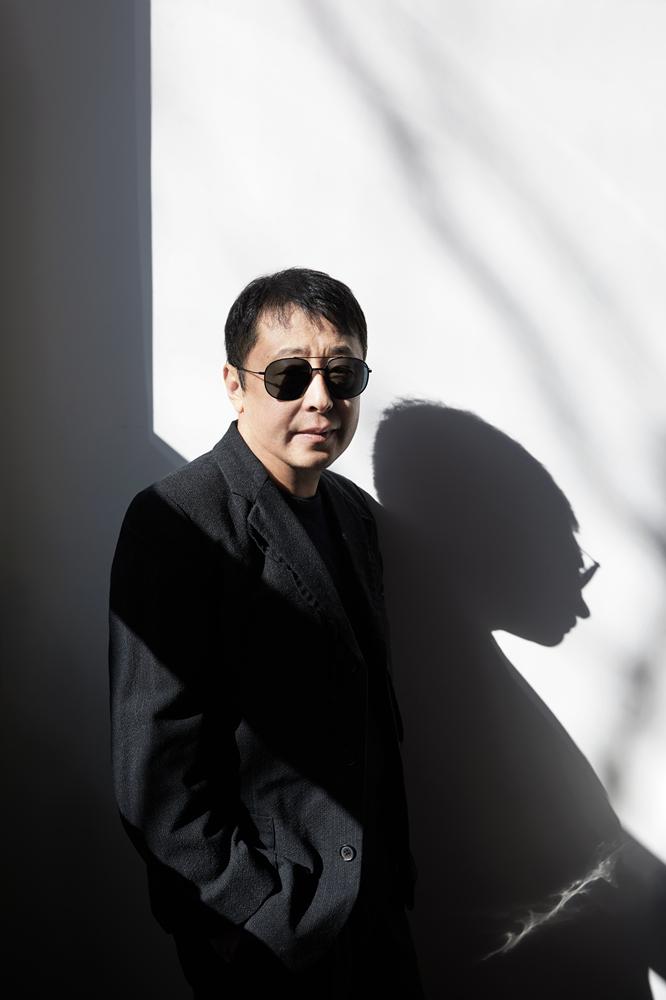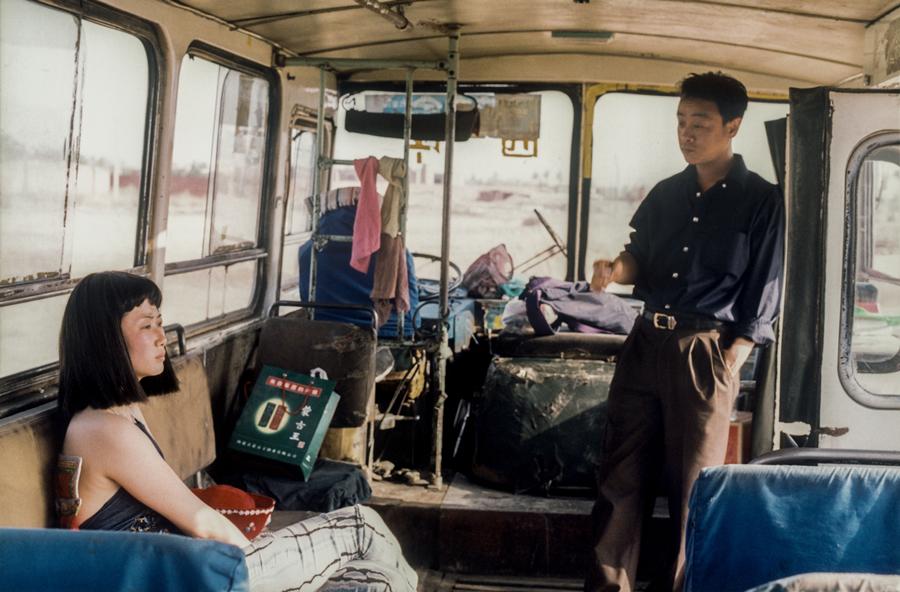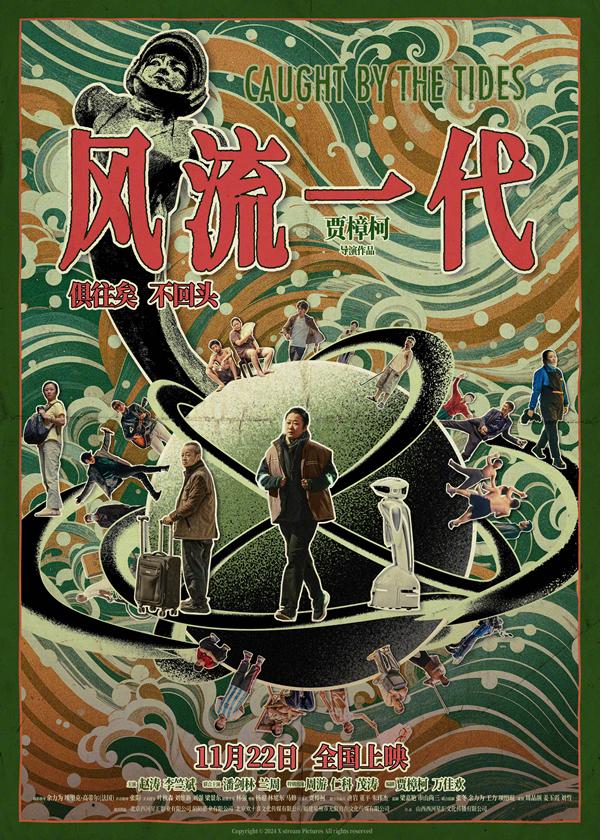Renowned Chinese filmmaker Jia Zhangke recently sat down with China.org.cn to discuss his latest film, "Caught by the Tides," which he spent 22 years making.

Director Jia Zhangke. [Photo provided to China.org.cn]
The journey began in 2001 when Jia, then 31, started exploring digital cameras. Before that, he had made two films on traditional film: "Xiao Wu" on 16 mm and "Platform" on 35 mm. Experimenting with a digital video (DV) camera, Jia found its texture strikingly different from cine film. Although DV cameras were still developing, they revolutionized filmmaking by enabling filmmakers to capture images without large teams or extensive lighting setups.
"I realized the kind of filmmaking I loved could now be achieved — like Dziga Vertov's 'Man with a Movie Camera,' with impressionistic, improvisational and poetic captures shaped into a visual work through editing," he said. As such, the project acquired the working title "Man with a DV Camera."
Jia was also deeply moved by the exciting social environment at the turn of the millennium. China was undergoing significant modernization, including joining the WTO, winning the bid to host the 2008 Olympics, and benefitting from the development of new technologies like the internet and cellphones. "As society was full of energy, everyone wanted to change themselves, embarking on adventures. I wanted to capture this zeitgeist in a traveling filmmaking style," he explained.
After nearly three years of filming, Jia paused to focus on other projects. Work on the film continued intermittently over the next two decades, until COVID-19 hit in 2020. Jia's frenetic pace of life was suddenly interrupted, and traveling became less convenient, meanwhile, new technologies were emerging quickly and kept developing. "I felt that we were truly on the verge of a new civilization, a new era, a new stage for human society, and I believed that it was time to finish the film," he told China.org.cn.
He reviewed the material he had accumulated over the previous two decades, some of which he had never watched, while also reusing some footage from his other films — "Unknown Pleasures" (2002), "Still Life" (2006) and "Ash Is Purest White" (2018). "The thing that interested me most was not in making it nostalgic," he said. "It was about revisiting the past to reflect on what we went through and how we got to where we are today. So, the entire editing process approached past footage and images with a perspective from today."

A still from "Caught by the Tides." [Photo courtesy of Xstream Pictures]
The film blends fiction and non-fiction in an impressionistic, non-linear way with fragmented footage he shot of contemporary China over the past two decades. It follows Qiao Qiao, a working-class woman from Datong, who embarks on a romance with Guo Bin. He promises to return for her once he becomes rich after he leaves to work in another province. Later, Qiao sets out to find him. She travels through areas displaced by the Three Gorges Dam and later to Guangdong province to tell him she is breaking up with him. Eventually, they reunite in Datong during COVID-19.
Qiao is played by Zhao Tao, Jia's wife, who has starred in most of his films. Initially, she was not meant to play the lead in "Caught by the Tides," but she emerged as a natural fit for the role. The film portrays her transformation from a woman stuck in love to one who becomes awakened and independent.
For years, Jia has been particularly drawn to smaller cities in China, feeling emotionally connected to them. He is fascinated by the stories of ordinary women, often silent or overlooked, whose emotional struggles and difficult environment make for inherently dramatic narratives. "Zhao Tao is perfect for such roles," Jia said.
The story of "Caught by the Tides" took shape during the COVID-19 years, and was written by Jia and screenwriter Wan Jiahuan. With additional shooting and new filming technologies, the film was no longer shot just on digital camera, prompting Jia to change the title.
"Our country's transformation has been drastic," Jia explained. "It's like tides crashing in, each altering many people's lives and experiences. We've always lived in such a state of change."

A poster for "Caught by the Tides." The film was released nationwide on Nov. 22, 2024. [Photo courtesy of Xstream Pictures]
Jia said he wants to continue making movies in the adventurous traveling filmmaking style, which fascinates him, but added that the process doesn't necessarily need to span 10 or 20 years. After producing the final cut of "Caught by the Tides," he feels it is a film facing the future.
"Looking back at the past 20 years, with many tides, highs and lows, I feel that the vitality and enthusiasm of the early 21st century, the energy of the new generation, and their drive have indeed diminished. Global economic issues and new economic models have all contributed to the erosion of this vitality. I believe we should carry forward what we've brought from the past, but I absolutely think we should move forward to continue changing life and society," he said. "There's no point looking back; you can't go back, and there's no need to go back."




